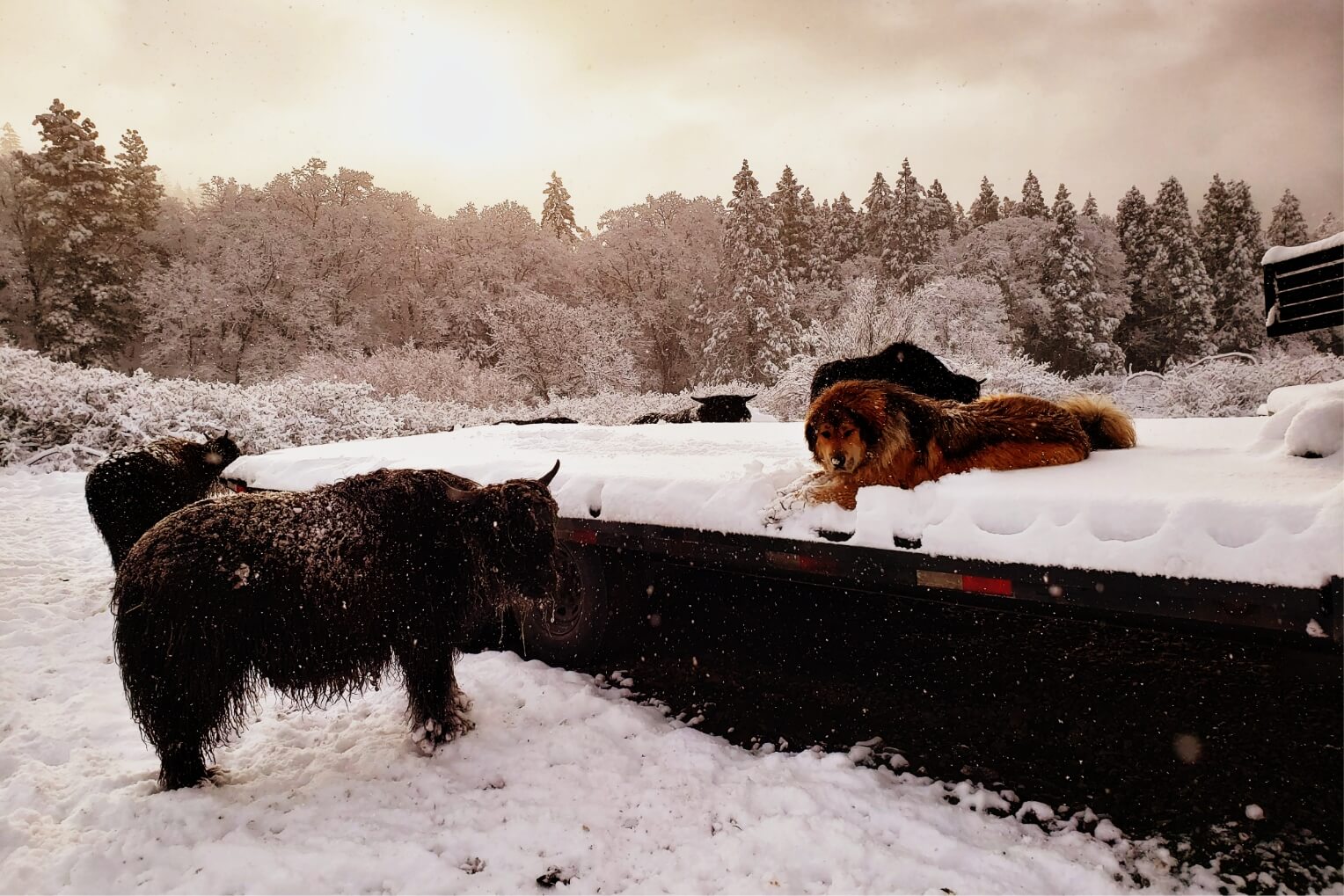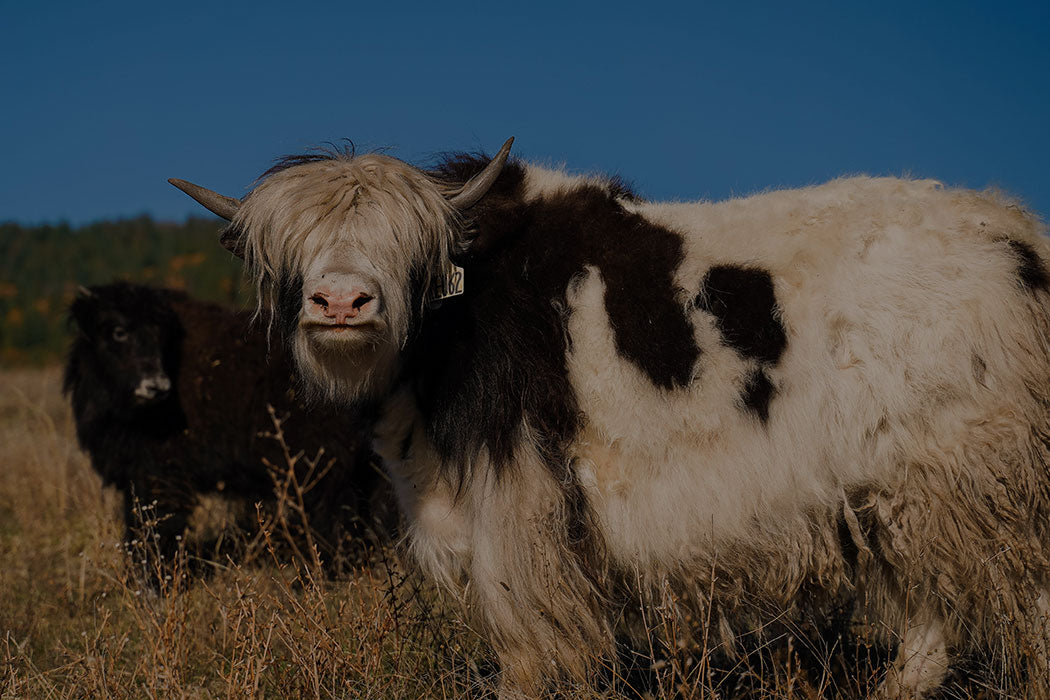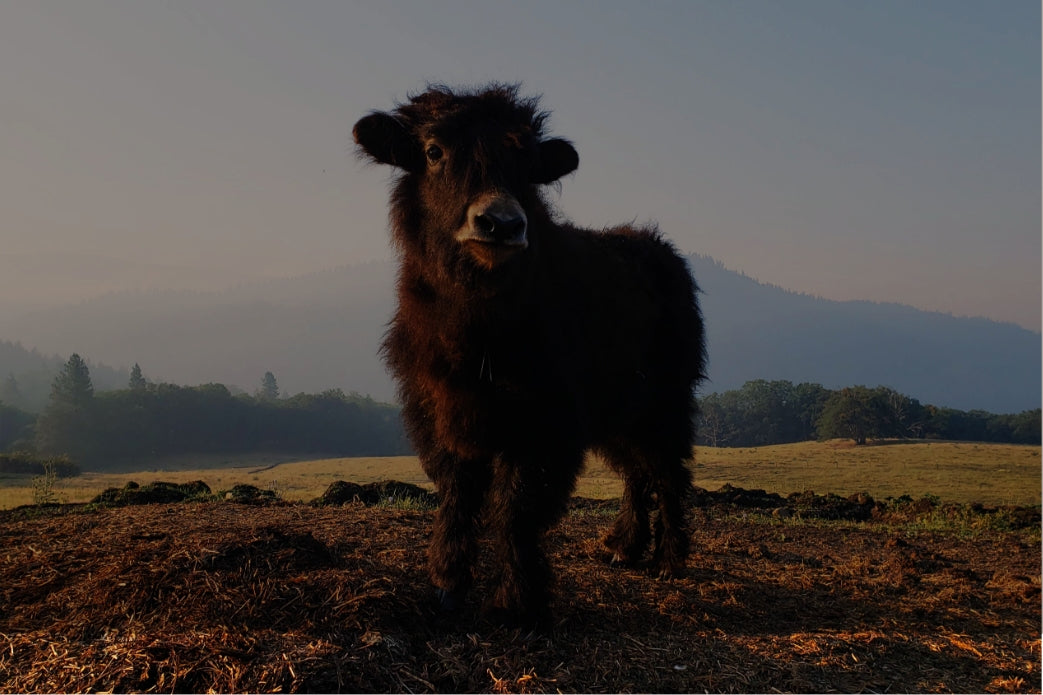The firebird
The Dream
I have always thought if you shoot for the stars, you’ll probably accomplish more than if your aim is lower. But the night sky is an endless sea of possibility. As a child I often wondered how I could best effect positive change in the world. I was raised a Buddhist. In that worldview, one is encouraged to use this precious life for the benefit of other beings. But there are so many ways to do so, so many ways to live our lives.
From an early age, I wanted a farm. I wanted to learn how to live simply, as our ancestors did, in the midst of the richness and abundance that nature offers, with reciprocity. I had no idea that the road ahead would bring me here, to this mountain land with a herd of yak.
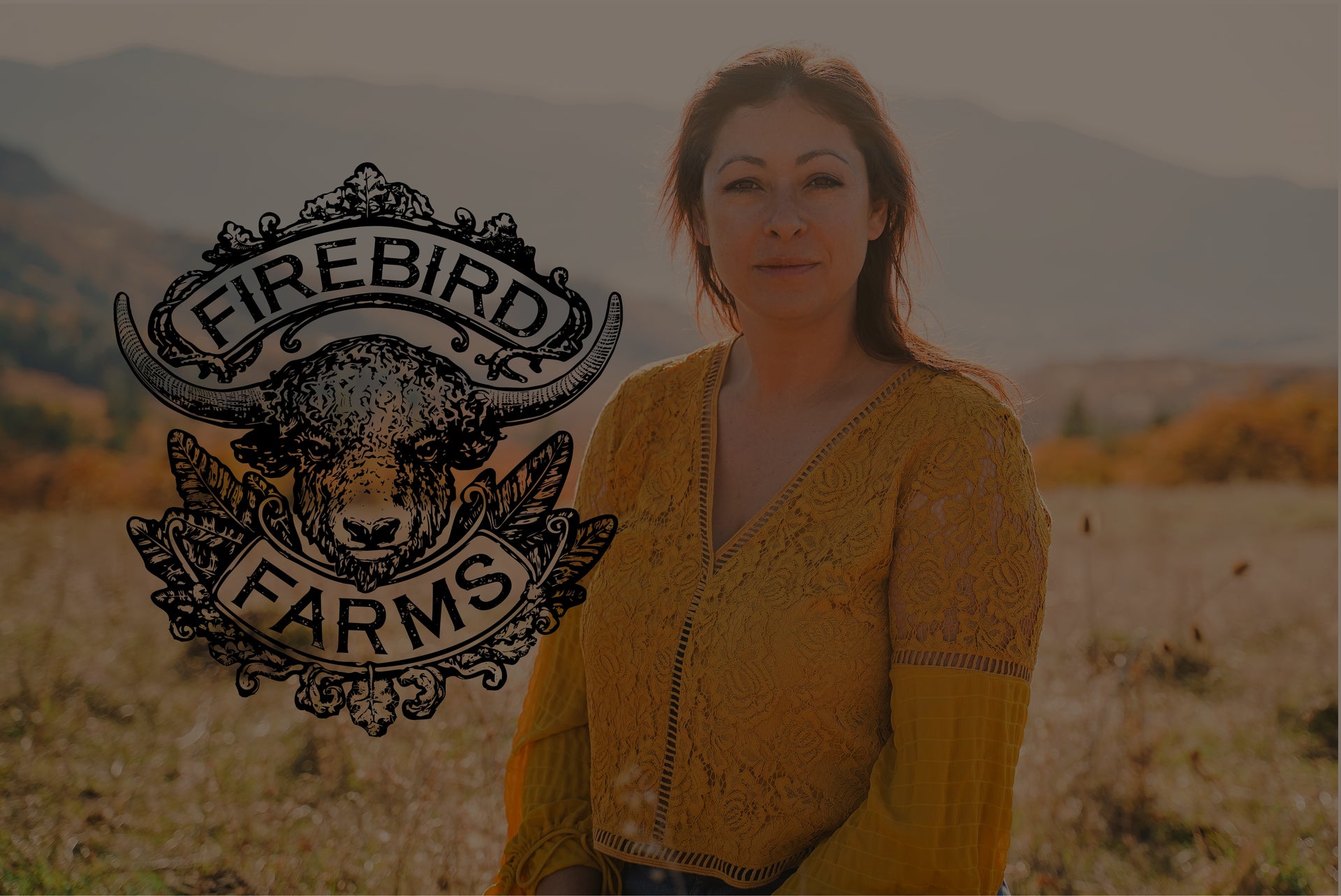
It is a complicated thing to find simplicity in a modern world that so readily consumes our time, thoughts and daily lives. It’s complicated to find a way of life in which we don’t adversely affect our environment and greater social structures. Globalism and the negative externalities of industry have veiled our deeper understanding and experience. Commerce, trade and supply chains with little transparency and “greenwashing” marketing strategies make it difficult to live with reasonable awareness of our effects on larger communities and ecosystems. The structural complexity of the systems on which we rely shields us from our role and place in the greater fabric of humanity and earth systems. It shields us from finding a deeper meaning, solace and gratitude.
At our farm, we emphasize the sustainability framework of the Triple Bottom Line (People, Planet, Profit) in our aim to succeed with a working farm while fulfilling these three important missions. It’s time to rework the ground of our supply chains. To re-envision how we do business, how we connect to one another, how we honor the earth and our communities. It’s time to build our local networks, support our producers directly and source imported goods from folks doing good work globally
“We have the capacity to create a remarkably different economy: one that can restore ecosystems and protect the environment while bringing forth innovation, prosperity, meaningful work, and true security.” - Paul Hawken
That’s why I chose the mythological Firebird, a creature that heralds awakening, freedom and recreation, as the symbol for our farm. In the midst of modernity, it is essential to reclaim the uncaptured, free spirit of the Firebird. To reclaim the sovereign power over our food, clothing and shelter and our relationships with what sustains us. To build a future that regathers what has been lost, bringing us into a more profound, appreciative, beneficially interconnected way of life. To build better, stronger, deeper roots.
Our yak remind me to be awake and responsive to my surroundings and to appreciate my experience in this life. They remind me to be flexible, think fast and act using my best self. They remind me of the magic that surrounds us. I’m not talking about fairy dust or spells. I mean the awareness of everything, along with things beyond our senses and comprehension: the mysteries of the world. The yak and the mythological Firebird are reminders to do better, work harder, and be kinder to others, the earth, and myself. To rebuild our world with tenderness into something beautiful, resilient and free.
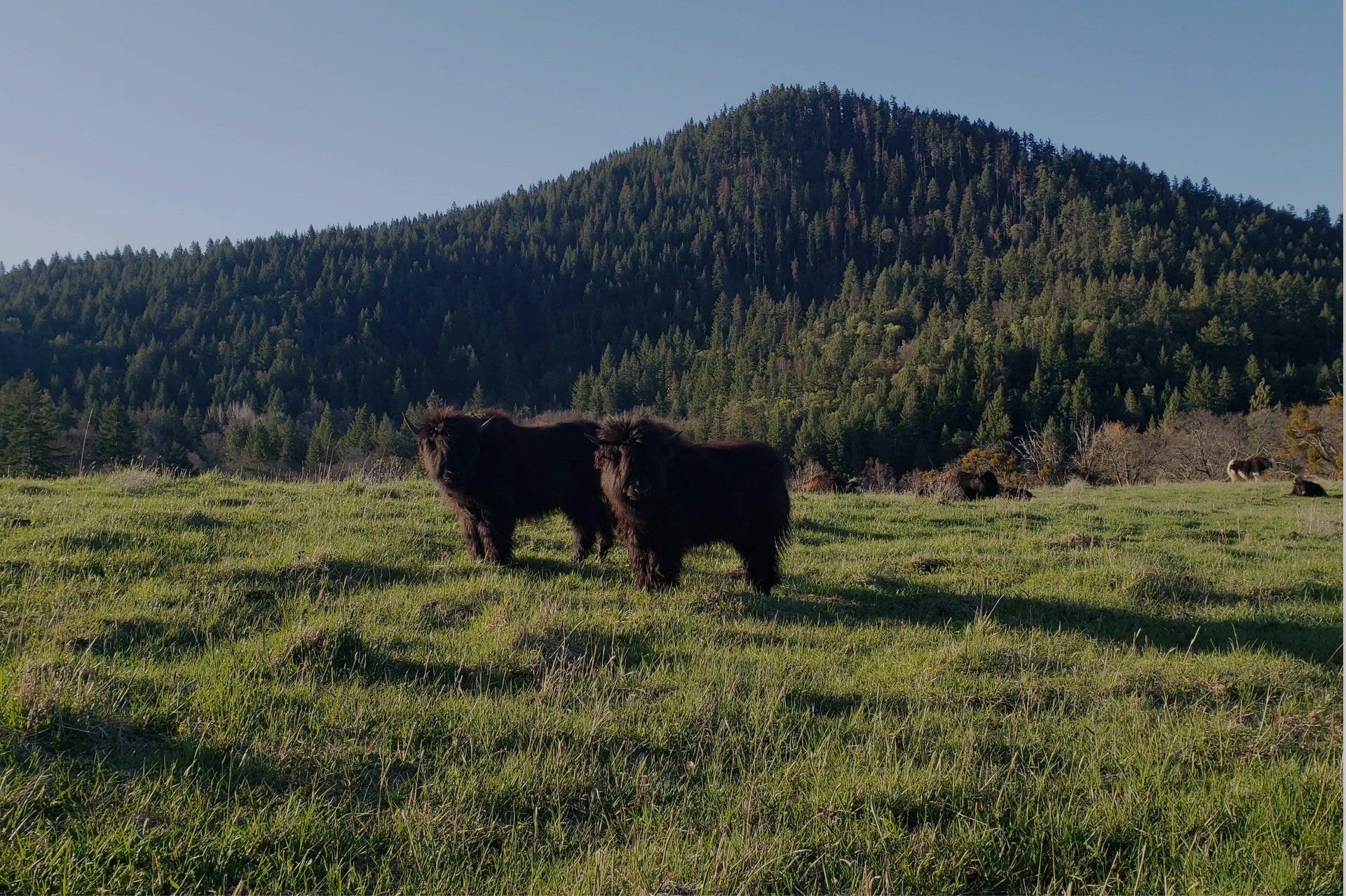
Land Learning
“Whoever could make two ears of corn or two blades of grass to grow upon a spot of ground where only one grew before, would deserve better of mankind, and do more essential service to his country than the whole race of politicians put together.” - Jonathan Swift, Gulliver’ s Travels, 1726
Some folks are fortunate to have irrigated flat agricultural land that produces well and easily meets their farming needs with reasonable cultivation and care. This is excellent and we applaud you from the highlands. However, on a global level, the majority of prime agricultural land has either been developed already or is economically unattainable. As drought and increasing population threaten both agricultural operations and humans’ access to water, water rights and irrigation issues are an ongoing challenge.
Our land is similar to many non-irrigated, harsher environments around the world. We have heavy clay soil, dry, sparse areas, rocky outcroppings, and hillside streams. There are some lush, established pasture areas and some with great potential.
Our rotational plan includes improving the productivity and vitality of the soil, finding climate and soil appropriate species for seeding, and creating a more robust ecosystem in which both the natural ecology and the yak can thrive. We hope that our experience here will benefit others working on holistic management in marginal farmland/ranching areas where low productivity creates challenges.
We are working on systems for building the soil, benefitting the land, growing more forage and preserving the natural environment. Our commitment to regenerative farming is far reaching, and we love a good challenge.
Species Preservation
Yak are by no means an endangered species. They are, however, an incredibly valuable rare species worthy of increased distribution in North America and abroad. There are three driving factors in our approach to raising yak for preserving and promoting the species.
• Yak globally have multiple phenotypes, as they developed in different isolated genetic populations. As a result of their subsistence-based husbandry heritage, a more primitive domestic animal developed.
• Native lands in the Tibetan Plateau have been affected as railroads, developments, fences, and Chinese mandates alter the traditional range, land and husbandry practices of the past hundreds of years. These changes in husbandry conditions may diminish the integrity and purity of various genetic populations of yak in their region of origin.
• The genetic population of yak in North America is currently limited, because it has its origins in a group of yak imported into Canada and the US. At this stage, we believe it is essential to ensure the resilience of the yak population through active outbreeding and focus on health, conformation and genetic diversity.
We have secured the most diverse group of yak possible, animals that meet our standards for furthering the species. Most have a traceable lineage through historic registrations. We focus on ensuring the strength and vitality of the species through researching genetics and acquiring excellent candidates to act as out-cross counterparts for the more prevalent established bloodlines in the US.
We value the phenotypic variation that occurs naturally within the yak population. While there is a certain “look” of yak that we prefer in general, all types have value, providing they are conformationally sound animals. We are fascinated by the traditional subsistence-based cultural framework in which this species originates. This Eastern tradition does not breed for any specific characteristics as Western breeders of many species tend to do. The lack of emphasis on breeding for certain traits has maintained a more primitive species with a great deal of diversity and phenotypic variation for millenia. We incorporate this concept as we further develop our breeding program.
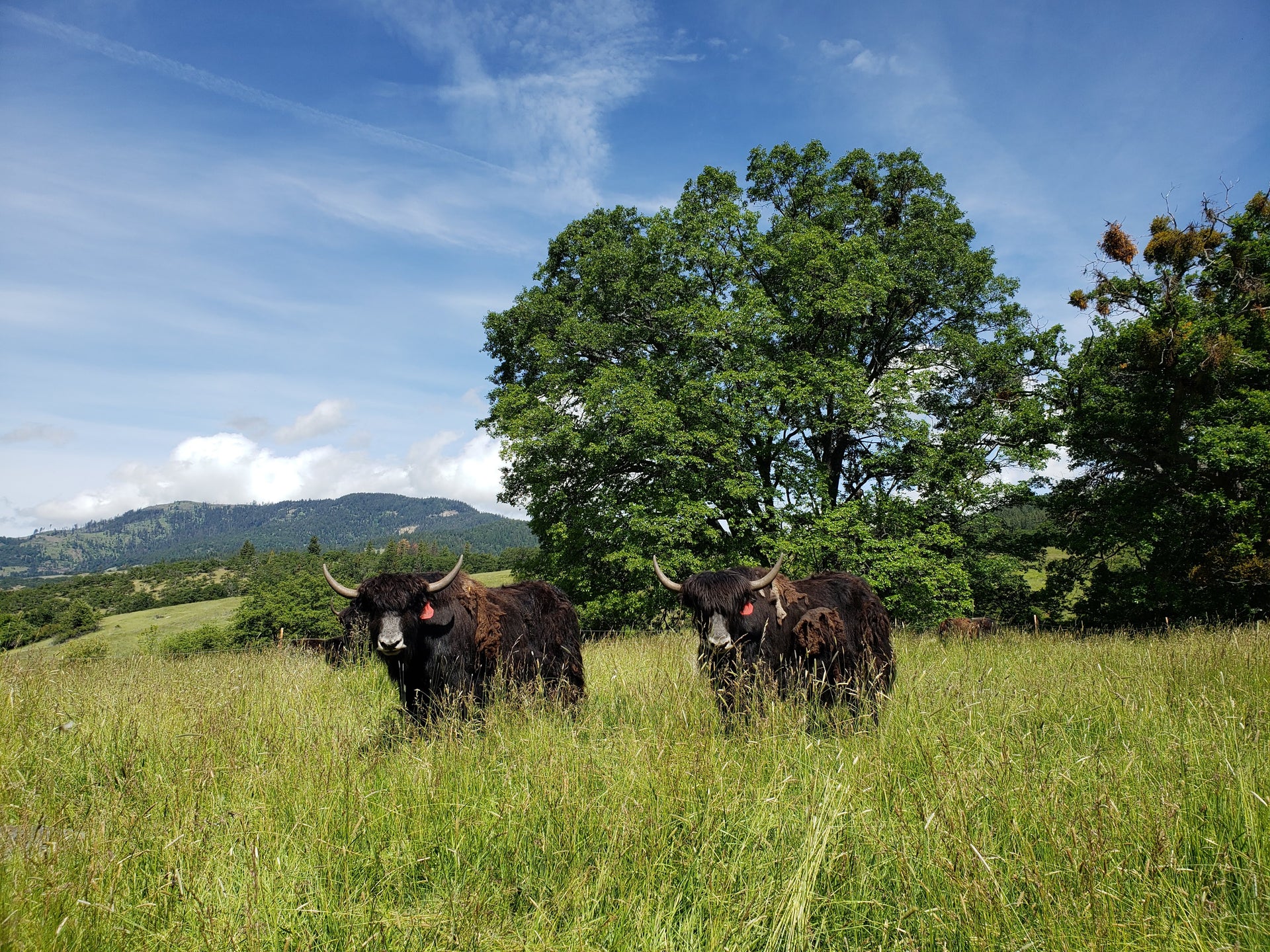
Our Meat Program
Our philosophy is that our lives are dependent on that of others and it is important to make the connection to what we are eating. Death is a part of life, and while this is not our favorite part of raising animals, we feel it is a service to our communities to provide products that we can trust, understand, be nourished by, feel good about, and enjoy.
Our yak graze on grasses from Oregon mountain pastures located at 4,000 to 5,000 feet elevation. We feed free choice quality organic alfalfa and grass hay and minerals in the winter. We know that high quality feed yields healthy, happy animals and better meat, milk, and fiber. Our yak are never given growth hormones or antibiotics , and they enjoy a feedlot-free lifestyle. We only use antibiotics to save a life, never for butcher animals. Our yak receive love and care throughout their lives. We place a high value on the lives of our animals, and appreciate knowing that they are raised ethically.
All of our yak have names. People often exclaim that they couldn’t butcher an animal with a name. But to us, they are valuable beings with meaning in both life and death. We appreciate and enjoy them for as long as they are in our herd. It is always hard to say goodbye.
Our yak never see a slaughterhouse and are initially processed on-farm by an Oregon Department of Agriculture certified butcher. This is the most quick, low-stress, humane and ethical process for our meat animals.
The meat is then cut and packaged by an ODA-certified local butcher, who takes great pride in his work. We dry age yak primals for at least 30 days. We find this yields the highest quality product. We collaborated to create a variety of sausages, sticks and jerky using local and organic ingredients. We value working closely with a local butcher and having the ability to provide our customers with a number of specific cuts and artisan products.
Yak is considered an exotic species by the USDA and is accepted through voluntary inspection. Our state allows us to do on-site field kills; our yak meat is not currently USDA certified. We are grateful for your support. As a small farm, we are pleased to offer delicious, high quality, healthy yak meat choices to you.
Sign Up
Interested in following along on our farm journey, then subscribe to the newsletter.
We promise not to spam you and will protect your name and email by not using it for any purpose other than our newsletter.
